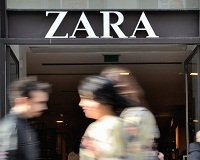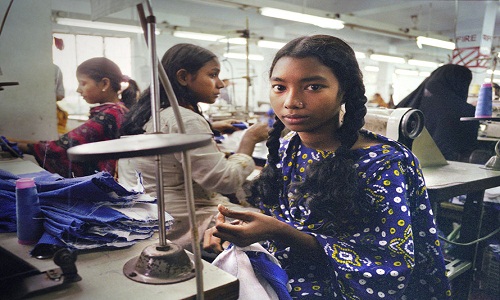"Consumers are tempted to buy trendy clothes the moment they are on shelves. But they don’t realise the stark reality, the pain with which the clothes are being manufactured. Fast fashion retailers in order to beat one another bring out newer collections frequently and this has been hampering not just the ecological system but also human labour adversely. Recently while shopping at Zara, customers from Istanbul found something unusual in the garments, which were tagged with messages from the factory workers saying, ‘I made this item you are going to buy, but I didn’t get paid for it.’ This is just one of instances showcasing their plight."

Consumers are tempted to buy trendy clothes the moment they are on shelves. But they don’t realise the stark reality, the pain with which the clothes are being manufactured. Fast fashion retailers in order to beat one another bring out newer collections frequently and this has been hampering not just the ecological system but also human labour adversely. Recently while shopping at Zara, customers from Istanbul found something unusual in the garments, which were tagged with messages from the factory workers saying, ‘I made this item you are going to buy, but I didn’t get paid for it.’ This is just one of instances showcasing their plight.

At most fast-fashion retailers’ workshops, employees work long days without a break to create hundreds of garments. These factories are also claimed to be anti-feminist. They exploit their largely female workforce while making a profit selling clothing with feminist messages. For example, 75 million people make clothes for brands across the world, and 80 per cent are women. These women encounter sexual assault, corporal punishment and verbal abuse while making little to no wages.
Can such incidents be ignored?
After the Zara incident, company officials were quick to respond stating that they are working on a proposal for a hardship fund for the employees affected by the situation. This instance should teach other brands that workers will take a stand against unethical practices.
A similar incident happened in Bangladesh when Rana Plaza collapsed, killing 1,134 and injuring more than 2,500 others. As a result, 17 companies including Nike, Patagonia and H&M, agreed to follow the transparency pledge. The pledge is aimed at providing ethically sourced products by encouraging brands to identify and provide other information about the clothing manufacture processes, according to the Human Rights Watch. However, still many brands are not publishing their information, including Urban Inc., Forever 21 and American Eagle Outfitters. Transparency is necessary to prove they are sourcing their garments ethically.
Women workers face the brunt
Women are making little to nothing for a garment and in return are sexually harassed, assaulted or worse. Designers and consumers alike need to face this problem by finding a balance between fairly priced garments and workers’ basic human rights. Most college students can’t afford expensive brands but still want to be conscious of how their clothing is manufactured. In order to drive the change, we need to acknowledge the problem and keep the discussion going. If this happens, then ultimately brands will have no choice, but to listen to its customers and source its products ethically.












